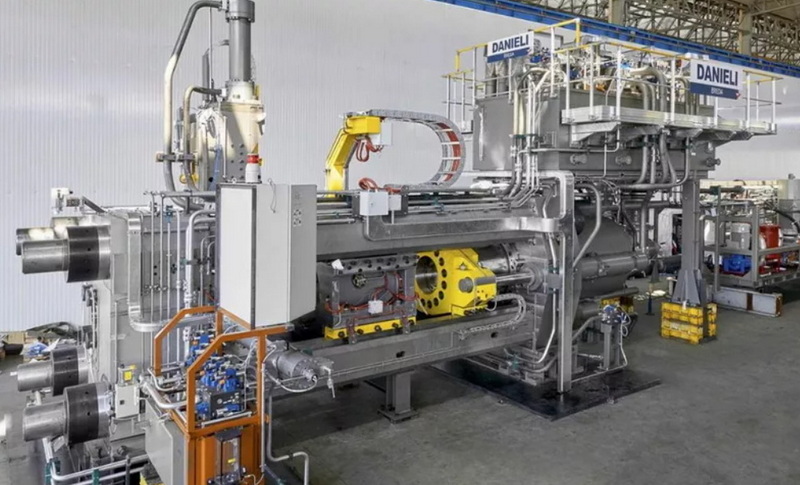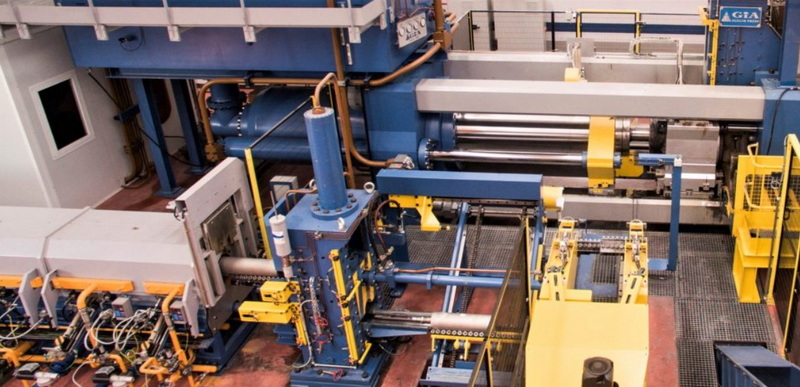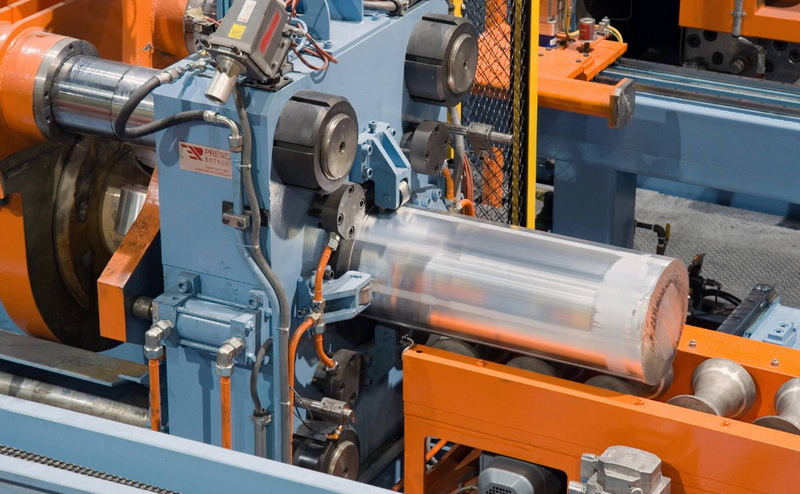Content Menu
● Understanding the Flame Saver Torch
● Preparing for Use
>> Safety First
● Setting Up the Flame Saver Torch
● Proper Technique for Using the Flame Saver Torch
>> 1. Igniting the Torch
>> 2. Maintaining the Correct Flame
>> 3. Torch Manipulation
>> 4. Temperature Control
● Optimizing Flame Saver Torch Performance
● Troubleshooting Common Issues
>> 1. Inconsistent Flame
>> 2. Poor Weld Quality
>> 3. Excessive Gas Consumption
● Environmental Considerations
● Integrating Flame Saver Torch Use with Modern Extrusion Technology
● Training and Skill Development
● Future Trends in Flame Saver Torch Technology
● Conclusion
● FAQ
>> 1. What are the main benefits of using a flame saver torch on an aluminum extrusion press?
>> 2. How often should a flame saver torch be maintained when used on an aluminum extrusion press?
>> 3. Can a flame saver torch be used on materials other than aluminum in an extrusion press?
>> 4. What safety precautions should be taken when using a flame saver torch on an aluminum extrusion press?
>> 5. How does the use of a flame saver torch impact the quality of the final extruded aluminum product?
● Citations:
Aluminum extrusion is a process that requires precision and careful control of heat. The oxy-fuel flame used in this process melts both the base metal and filler rod, meticulously pushing back the oxide layer to create a strong, continuous joint.[1] One crucial tool in this process is the flame saver torch, which plays a vital role in maintaining the quality and efficiency of aluminum extrusion. This article will guide you through the proper use of a flame saver torch on an aluminum extrusion press, ensuring optimal results and safety in your operations.

Understanding the Flame Saver Torch
Before delving into the proper usage, it's essential to understand what a flame saver torch is and its importance in aluminum extrusion.
A flame saver torch is a specialized tool designed to maintain a consistent flame temperature and reduce gas consumption during the extrusion process. It's particularly useful in aluminum extrusion as it helps manage the high temperatures required while minimizing waste and improving efficiency.
Preparing for Use
Before using the flame saver torch on an aluminum extrusion press, proper preparation is crucial. This includes thorough cleaning of the weld area with stainless steel brushes or solvent wipes designed for aluminum to remove all dirt, oil, and oxides. Additionally, use a specialized aluminum flux that breaks down the oxide layer and promotes smooth metal flow.[1]
Safety First
Safety should always be your top priority when working with a flame saver torch on an aluminum extrusion press. Here's a comprehensive safety checklist:
1. Wear appropriate safety glasses or goggles
2. Use cut-resistant gloves when handling materials
3. Wear heat-resistant clothing
4. Ensure steel-toed boots are worn
5. Use hearing protection in high-noise areas
6. Follow proper startup procedures
7. Maintain clear communication with team members
8. Adhere to safe loading and unloading practices
9. Monitor press operations for any abnormalities
10. Know the location of fire extinguishers and first aid kits
11. Be familiar with emergency evacuation routes
12. Understand how to activate emergency stop procedures[2]
Setting Up the Flame Saver Torch
Proper setup of the flame saver torch is crucial for its effective use on an aluminum extrusion press. Follow these steps:
1. Inspect the torch: Check for any damage or wear before each use.
2. Connect to gas supply: Ensure all connections are secure and leak-free.
3. Adjust gas flow: Set the appropriate gas flow rate according to manufacturer specifications.
4. Check the nozzle: Ensure the nozzle is clean and free from obstructions.
Proper Technique for Using the Flame Saver Torch
Using a flame saver torch on an aluminum extrusion press demands both precision and respect for the fiery tools. Improper technique can lead to porosity, brittle welds, and even fiery mishaps.[1] Here's how to use it correctly:
1. Igniting the Torch
- Open the fuel valve slowly
- Ignite the torch using a spark lighter
- Adjust the flame to achieve the desired intensity
2. Maintaining the Correct Flame
Maintain a slight oxidizing flame (inner feather slightly longer than the outer cone) to burn away the oxide while welding.[1] This is crucial for achieving high-quality welds in aluminum extrusion.
3. Torch Manipulation
Hold the torch nearly perpendicular to the joint to minimize air pockets. Maintain a consistent travel speed, neither too fast nor too slow, to allow proper gas shielding and metal fusion.[1]
4. Temperature Control
In the extrusion shop, the thermocouple (TC) is the most common temperature-measuring element. When using a thermocouple to feed a temperature control instrument with information, the well for the TC should be sunk as deeply into the barrel wall as safety will allow. The base of the well should accurately match the shape of the TC tip. The TC may be spring loaded, so that when inserted into the hole and twisted, it is locked in place under a controlled pressure. This allows the TC to sense the temperature of the metal close to the polymer. With a three-term control system (PID), the barrel temperature may be controlled to within ±1˚C/1.8˚F.[4]

Optimizing Flame Saver Torch Performance
To get the most out of your flame saver torch on an aluminum extrusion press, consider these tips:
1. Regular maintenance: Clean the torch regularly and replace worn parts.
2. Proper gas mixture: Ensure the correct ratio of fuel to oxygen for optimal flame characteristics.
3. Consistent technique: Develop and maintain a consistent technique for best results.
4. Monitor gas consumption: Keep track of gas usage to ensure the flame saver is functioning efficiently.
Troubleshooting Common Issues
Even with proper use, you may encounter issues when using a flame saver torch on an aluminum extrusion press. Here are some common problems and their solutions:
1. Inconsistent Flame
- Check gas supply and connections
- Clean the torch nozzle
- Adjust gas mixture ratio
2. Poor Weld Quality
Ensure both the base metal and filler rod are free of oil, grease, and moisture. Hold the torch nearly perpendicular to the joint to minimize air pockets. Maintain a consistent travel speed, neither too fast nor too slow, to allow proper gas shielding and metal fusion.[1]
3. Excessive Gas Consumption
- Check for leaks in the system
- Ensure the flame saver mechanism is functioning correctly
- Adjust flame size to match the job requirements
Environmental Considerations
When using a flame saver torch on an aluminum extrusion press, it's crucial to ensure adequate ventilation in the workspace to dissipate heat and fumes generated during the extrusion process. This is particularly important when working with lubricants or cutting fluids that may release harmful vapors.[8]
Consider implementing the following measures:
1. Install proper ventilation systems
2. Use fume extractors near the work area
3. Regularly monitor air quality
4. Provide personal protective equipment for respiratory protection if necessary
Integrating Flame Saver Torch Use with Modern Extrusion Technology
As technology advances, the use of flame saver torches on aluminum extrusion presses is being integrated with modern control systems and automation. This integration can lead to improved efficiency, consistency, and safety.
For example, advanced cooling systems like the High-Intensive Quenching Table feature adjustable spray nozzles with selective angles of incision that can be programmed according to the specific geometry and section of the profile being cooled. By parametrizing the profile in the software, the machine can automatically orient the spray nozzles for optimal cooling of all sections of the profile. This high-efficiency cooling system is particularly well-suited and up to date for use in the automotive industry. High-intensive quenching ensures that each profile section is cooled evenly, reducing the risk of deformation and improving product quality.[9]
Training and Skill Development
Comprehensive training programs are essential for all operators and maintenance personnel working with flame saver torches on aluminum extrusion presses. Training should cover:
- Safe operating procedures for the extrusion press
- Emergency response protocols
- Proper handling and storage of materials
- Recognition of potential hazards[2]
Regular refresher courses and skill assessments can help maintain a high level of competence and safety among operators.
Future Trends in Flame Saver Torch Technology
As the aluminum extrusion industry continues to evolve, so does the technology behind flame saver torches. Some emerging trends include:
1. IoT integration for real-time monitoring and adjustment
2. AI-powered optimization of flame characteristics
3. Advanced materials for improved torch durability and performance
4. Enhanced safety features such as automatic shut-off systems
Conclusion
Proper use of a flame saver torch on an aluminum extrusion press is crucial for achieving high-quality results while maintaining safety and efficiency. By following the guidelines outlined in this article, operators can optimize their use of flame saver torches, leading to improved product quality, reduced waste, and enhanced safety in aluminum extrusion operations.
Remember that the key to success lies in thorough preparation, adherence to safety protocols, proper technique, and ongoing training and skill development. As technology continues to advance, staying informed about the latest developments in flame saver torch technology and integrated extrusion systems will be essential for maintaining a competitive edge in the industry.

FAQ
1. What are the main benefits of using a flame saver torch on an aluminum extrusion press?
The main benefits of using a flame saver torch on an aluminum extrusion press include improved fuel efficiency, consistent flame temperature, reduced gas consumption, and better control over the extrusion process. This leads to higher quality welds, less waste, and increased productivity.
2. How often should a flame saver torch be maintained when used on an aluminum extrusion press?
Regular maintenance of a flame saver torch used on an aluminum extrusion press is crucial. Daily visual inspections should be performed, with more thorough cleaning and maintenance conducted weekly. Additionally, professional servicing should be scheduled every 3-6 months, depending on usage intensity.
3. Can a flame saver torch be used on materials other than aluminum in an extrusion press?
While flame saver torches are particularly well-suited for aluminum extrusion, they can be used on other materials in an extrusion press. However, the settings and techniques may need to be adjusted based on the specific material properties. Always consult the manufacturer's guidelines and conduct tests before using a flame saver torch on non-aluminum materials.
4. What safety precautions should be taken when using a flame saver torch on an aluminum extrusion press?
Key safety precautions include wearing appropriate personal protective equipment (PPE) such as heat-resistant gloves, safety glasses, and flame-resistant clothing. Ensure proper ventilation in the work area, have fire extinguishing equipment readily available, and follow all manufacturer guidelines for torch operation. Regular safety training for all operators is also essential.
5. How does the use of a flame saver torch impact the quality of the final extruded aluminum product?
The use of a flame saver torch can significantly improve the quality of the final extruded aluminum product. By providing consistent heat and precise control, it helps maintain uniform material properties throughout the extrusion process. This results in better surface finish, improved dimensional accuracy, and enhanced mechanical properties of the extruded aluminum products.
Citations:
[1] https://www.chaluminium.com/mastering-the-flame-tips-and-tricks-for-gas-welding-aluminum
[2] https://www.yjing-extrusion.com/how-to-ensure-employee-safety-in-aluminum-extrusion-press-operations.html
[3] https://superiorextrusion.com
[4] https://www.dynisco.com/userfiles/files/Extrusion_Operations.pdf
[5] https://www.linkedin.com/pulse/four-precautions-aluminum-extrusion-machine-operators-when-operating
[6] https://www.extrusion.net
[7] https://www.youtube.com/watch?v=e8PCFzg_D_E
[8] https://www.yjing-extrusion.com/what-are-the-key-safety-measures-for-alco-aluminum-extrusion-press.html
[9] https://aec.org/extrusion-equipment






















